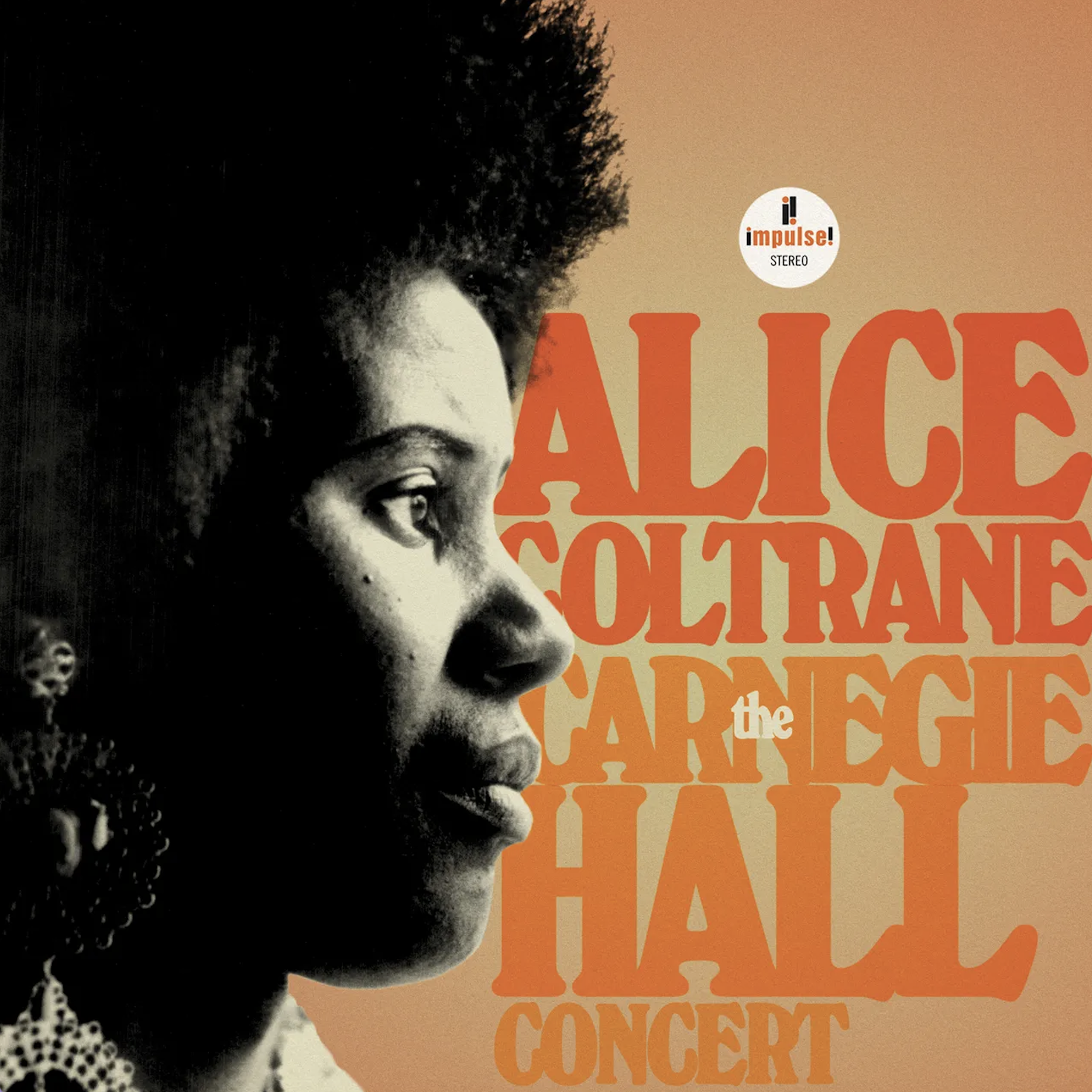Showing another side of Alice Coltrane, “The Carnegie Hall Concert” captures fury
There was, apparently, a time when a somewhat wide audience would routinely pay good money and pack huge venues to see some of the most awe-inspiring, boundary pushing, and artistically pioneering music around. As unbelievable as this widespread tolerance for artistic ambition might feel to us today, the newly reissued recording of Alice Coltrane’s 1971 Carnegie Hall concert stands as a snapshot of one paradoxical moment when guttural, terrifying experimentalism flirted with mainstream acceptance. When you compare Alice Coltrane and Co.’s work here to arguably the most well-known live album cut at Carnegie Hall, Judy Garland’s admittedly wonderful and virtuosic, yet relatively safe performance, it paints a picture of how strange it really is that this show was even able to happen. Hot on the heels of the release of her now celebrated Journey in Satchidananda, Coltrane played one of her most high-profile gigs ever. Backed by an all-star band of some of her most celebrated peers in the so-called spiritual jazz movement, including Pharoah Sanders and Archie Shepp on saxophone, as well as the highly memorable dual-drummer pairing of Ed Blackwell and Clifford Jarvis, she uncompromisingly rose to the occasion.
As of late, Alice Coltrane has rightfully been reevaluated as one of the most pioneering and unique figures in jazz history. However, it seems that she is now mostly celebrated for the soothing spiritual, mystic qualities of her work and the softer, more atmospheric side of her catalog. On this record, she shows herself as capable of producing an angrier, more political sound, akin to the music she collaborated on with her late husband John Coltrane.
However, the performance does begin on a softer note. Coltrane herself elects to step back and remain on her harp for the first two tracks of the four song set. Opener “Journey in Satchidananda” is an ominous and open-ended mood setter; A tightly executed extended performance of one her signature compositions. While her harp is gorgeous, here, Coltrane moreso highlights her skill as a bandleader, allowing the rhythm section and dueling saxophonists to soar on a series of politely modest solos, before winding the piece to a gentle climax. That somewhat sleepier energy continues on the second track, “Shiva-Loka,” where dissonance gradually begins to creep in, contrasting the often serene feel. The audience’s polite applause following each solo and piece seems woefully unprepared for the cacophonous violence of the latter half of the performance.
The highlight here is the John Coltrane composition “Africa,” which immediately begins with a propulsive dual-drum solo before launching into furious, completely unhinged noise. From that aggressive tonal shift alone, it becomes clear that the band is warmed-up to their full powers. Every player on stage seems to lock onto a phenomenal shared intensity. Solos flow from one to another, often stopping and starting seemingly out of nowhere. Sometimes, the playing echoes the spirit of the late John Coltrane’s infamous style, riding atop impossibly ambitious runs, stopping and starting on a dime. However, at others, Alice Coltrane directs them somewhere beyond that. Despite a heavy emphasis on highlighting individual players, there is an overwhelming sense of collectivism in the way she leads her band.
Where Alice Coltrane succeeds beyond her contemporaries lies in her dedication to precision. Her ability to control dynamics and range onstage, even when diving headfirst into complete chaos, allows her to push the boundaries of noise and dissonance while pulling it back whenever she sees fit. She plays with this sort of quiet/loud dynamic to great success on “Africa,” exerting a masterful control and keeping it all completely gripping, despite its thirty minute runtime. More so than many other bandleaders, she has an acute sense of when to trust and relinquish control versus when to tighten her grip.
All the while, she simultaneously plays piano on the latter two tracks to great effect. As much renewed popularity as she has garnered in recent years, it feels as if she is sometimes praised more so for her sense of mood and, for lack of a better word, her “vibe,” than for her playing itself. Make no mistake, she sat behind the piano on many occasions (and alongside countless legends) with her late husband’s band. As she demonstrates on “Africa” and closer “Leo,” her skill asserts her firmly alongside the titans of jazz piano of her time. Her playing is liberated, chopping up rhythms and gliding across the keys with a sort of wall of sound approach, delivering an incredibly full sound that is unmistakably confident. On “The Carnegie Hall Concert,” we are reminded that Alice Coltrane was as strong a player as anyone else. At a crucial moment in her career, she claims her rightful place in the spotlight, but at the same time, she takes every opportunity to turn attention towards the incredible company she surrounds herself with.
Grade: A
Listen to The Carnegie Hall Concert (Live) here:

